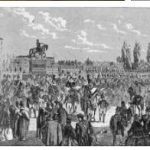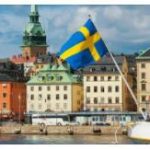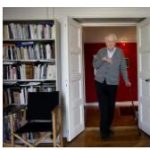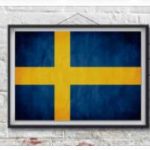Policy change and new challenges
The Reichstag elections on September 17, 2006 were won by the bourgeois “Alliance for Sweden” (a total of 48.2% of the votes, 178 seats) under the leadership of F. Reinfeldt (moderate rallying party), who was elected Prime Minister on October 5, 2006 and a four-party government (Moderate Rally Party, Center Party, Liberal People’s Party, Christian Democrats) formed.
On March 17, 2007, the party congress delegates of the SAP elected Mona Sahlin (* 1957) as the new party leader. The first woman to hold this post in the history of SAP succeeded G. Persson, who announced his resignation after the 2006 election defeat. After the serious incidents in summer and autumn 2006, the Vattenfall Group’s nuclear reactors remained in the headlines: In February 2007, the national supervisory authority banned the re-commissioning of the Forsmark 2 nuclear reactor after further serious safety deficiencies had been discovered. The International Atomic Energy Agency sent at the invitation of the government(IAEA) inspectors to check the safety of the Forsmark facility. Against fierce opposition from the social democratic opposition, from human rights groups and the media, the Reichstag passed a law on June 16, 2008 with 143 votes against 138, giving the security organs extensive powers to investigate.
The international financial market crisis and the slowdown in the global economy also affected the Swedish economy in the same year. The major Swedish banks suffered serious credit losses. In order to keep the finance houses liquid, the government assured them financing guarantees on October 20, 2008 and set up a stability fund in the event of impending bankruptcy. The unemployment rate rose sharply in 2009. To stimulate the labor market and domestic demand, the government set up a »crisis budget« for 2009 amounting to 32 billion skr. On February 5, 2009, the center-right coalition lifted the construction ban on nuclear power plants that had existed for almost 30 years. On November 5, 2009, the government gave up its ecological concerns and approved the construction of the Baltic Sea pipeline through its territorial waters. On July 1, 2010, general conscription was abolished.
In the parliamentary elections on 19 9.2010 the opposition showed the Social Democrats with 30.7% of votes, the worst result since 1914. Mona Sahlin announced, in 2011 the party chairmanship on. The bourgeois four-party coalition missed an absolute majority in the Reichstag by two seats in the elections. Reinfeldt’s Moderate Collection Party received 30.1% of the vote and 107 seats (2006: 26.2% and 97 seats). According to pharmacylib, the right-wing populist Sweden Democrats were able to move into the Reichstag with 20 members. Reinfeldt continued the previous coalition as a minority government. This came under fire when it became known in March 2012 that an institute downstream from the Ministry of Defense had been involved in the construction of an arms factory in Saudi Arabia since 2007. The Minister of Defense resigned. In May 2013, young people in the v. a. The Stockholm suburb of Husby, inhabited by migrants, caused numerous fires, which led to clashes with the police. The trigger was the shooting of a 69-year-old immigrant, according to the police in self-defense. At the beginning of September 2013, Sweden became the first European country to guarantee all Syrian refugees a permanent right of residence. In 2013, more than 14,000 Syrians fled to Sweden because of the conflict in Syria.
In the parliamentary elections on September 14, 2014, Prime Minister Reinfeldt’s conservative government camp suffered heavy losses. Reinfeldt’s moderate rallying party was only able to win 23.3% of the votes and thus had 84 seats in the Reichstag, a loss of 23 seats. The opposition Social Democrats improved slightly from 30.7% to 31.0% and won 113 seats. The right-wing populist Sweden Democrats, who became the third strongest political force with 12.9% of the vote and 49 seats, recorded substantial gains. After the clear defeat, the parliament elected S. Löfven on October 2nd, 2014, the chairman of the Social Democrats, as the new Prime Minister at the head of a minority cabinet made up of Social Democrats and Greens.
However, on December 3, 2014, parliament rejected the new government’s draft budget. Prime Minister Löfven then resigned first of all new elections. Finally, the governing parties agreed with the bourgeois opposition (Moderate Rally Party, Liberal People’s Party, Christian Democrats, Center Party) on an agreement (“December Agreement”) to secure minority governments, which will be valid until 2022. Thereafter, the candidate who receives the most votes in the Reichstag becomes Prime Minister. In addition, it was agreed that the respective opposition would abstain from voting on the draft budget of the minority government, as well as cooperation between the government and the opposition on questions of security, energy and social policy. In October 2015, the opposition canceled the “December Agreement”.
In view of the continued strong increase in the number of refugees in 2014/15v. a. from Syria, Sweden reintroduced border controls for travelers from Germany and Denmark in November 2015. On June 21, 2016, the Reichstag approved a tightening of the asylum law, according to which the authorities should only issue temporary residence permits for the next three years and the right to family reunification was limited. In March 2017, due to the changed security situation and too few volunteers, the government decided to reintroduce compulsory military service on January 1, 2018, for the first time also for women (compulsory military training as of July 1, 2017). The Reichstag election of 9.9.2018 resulted in a loss of votes for the Social Democrats and the Greens as well as gains for the Left Party and almost a tie with the bourgeois opposition. Both camps were still far from an absolute majority. Löfven made it difficult.









